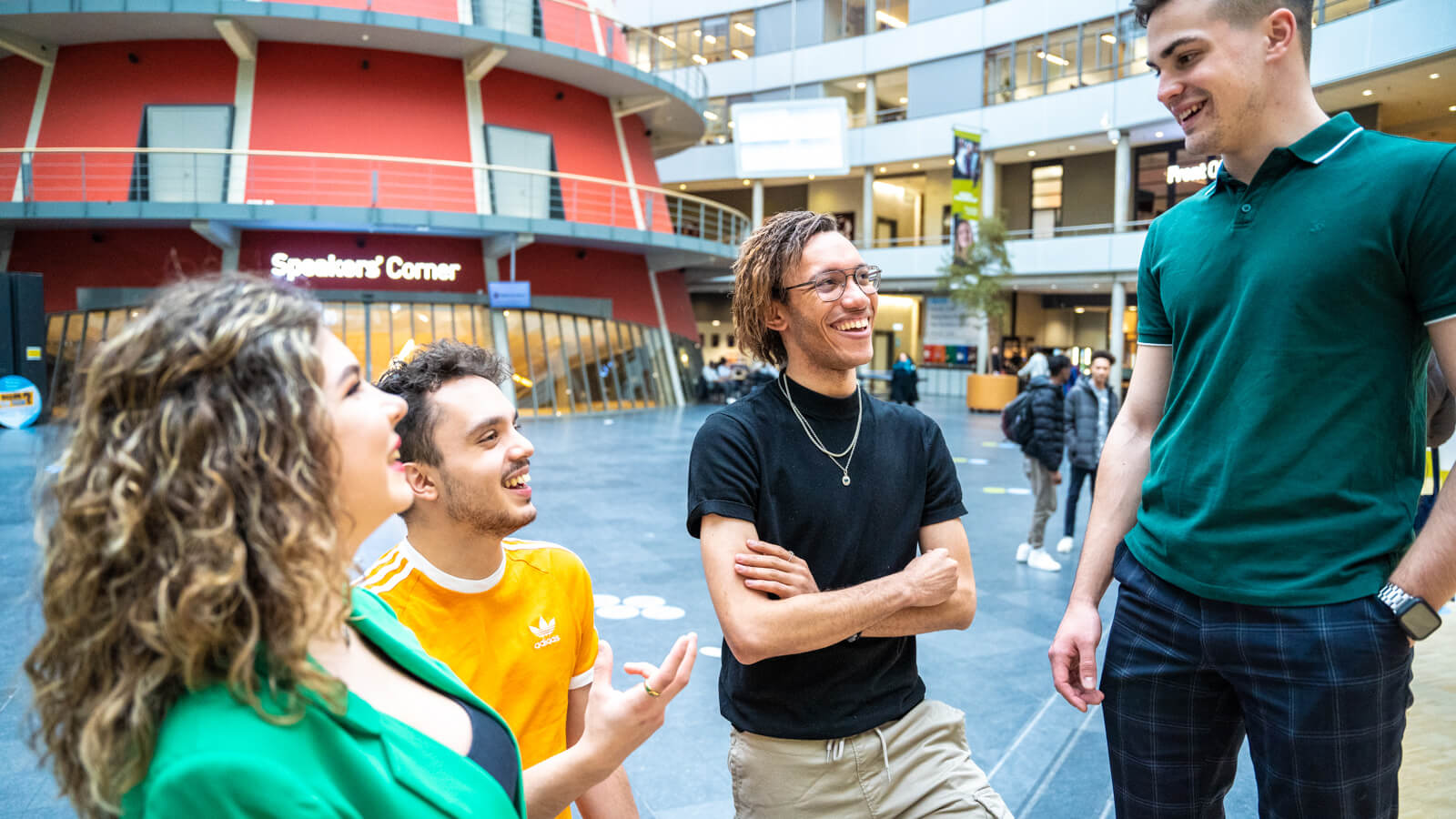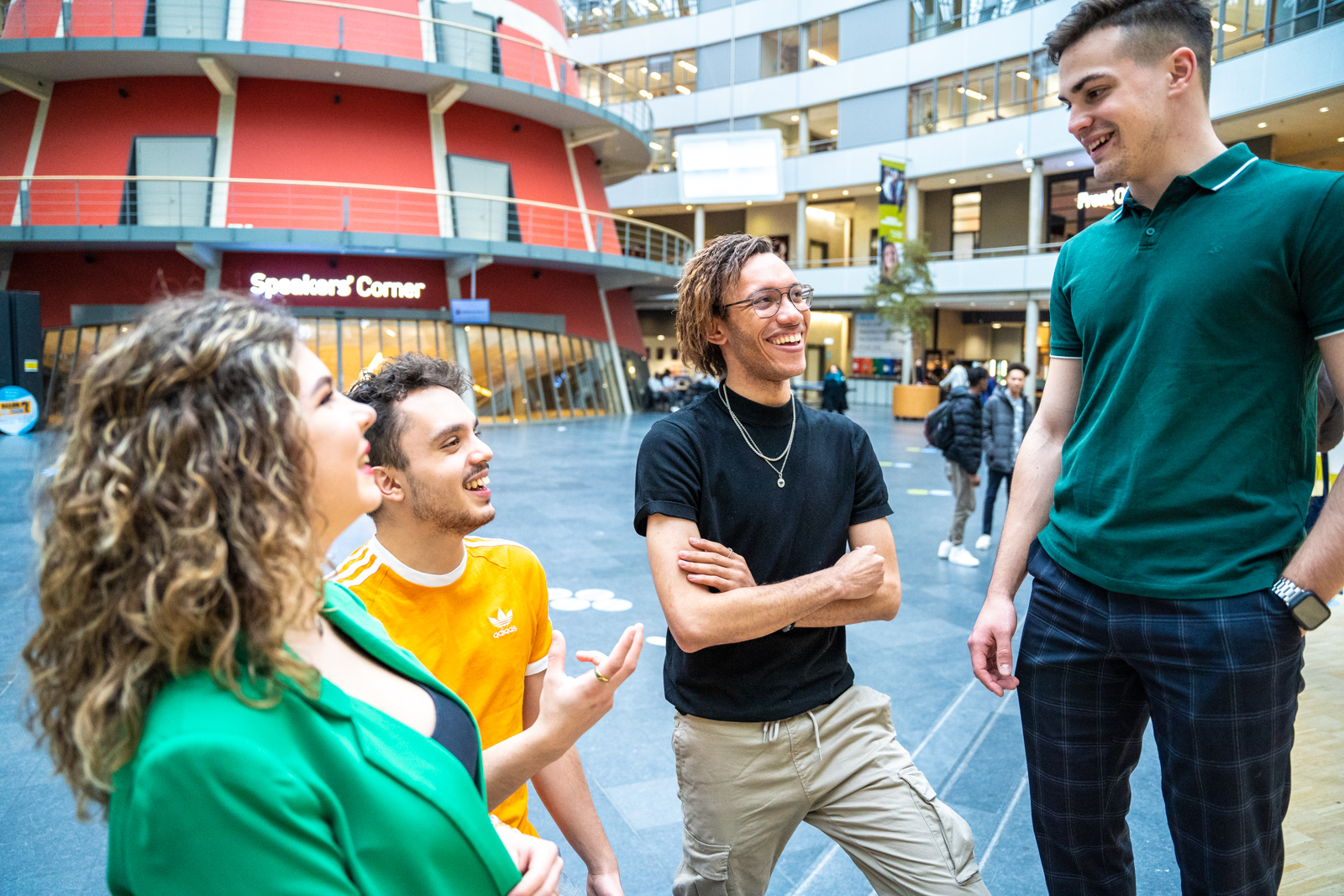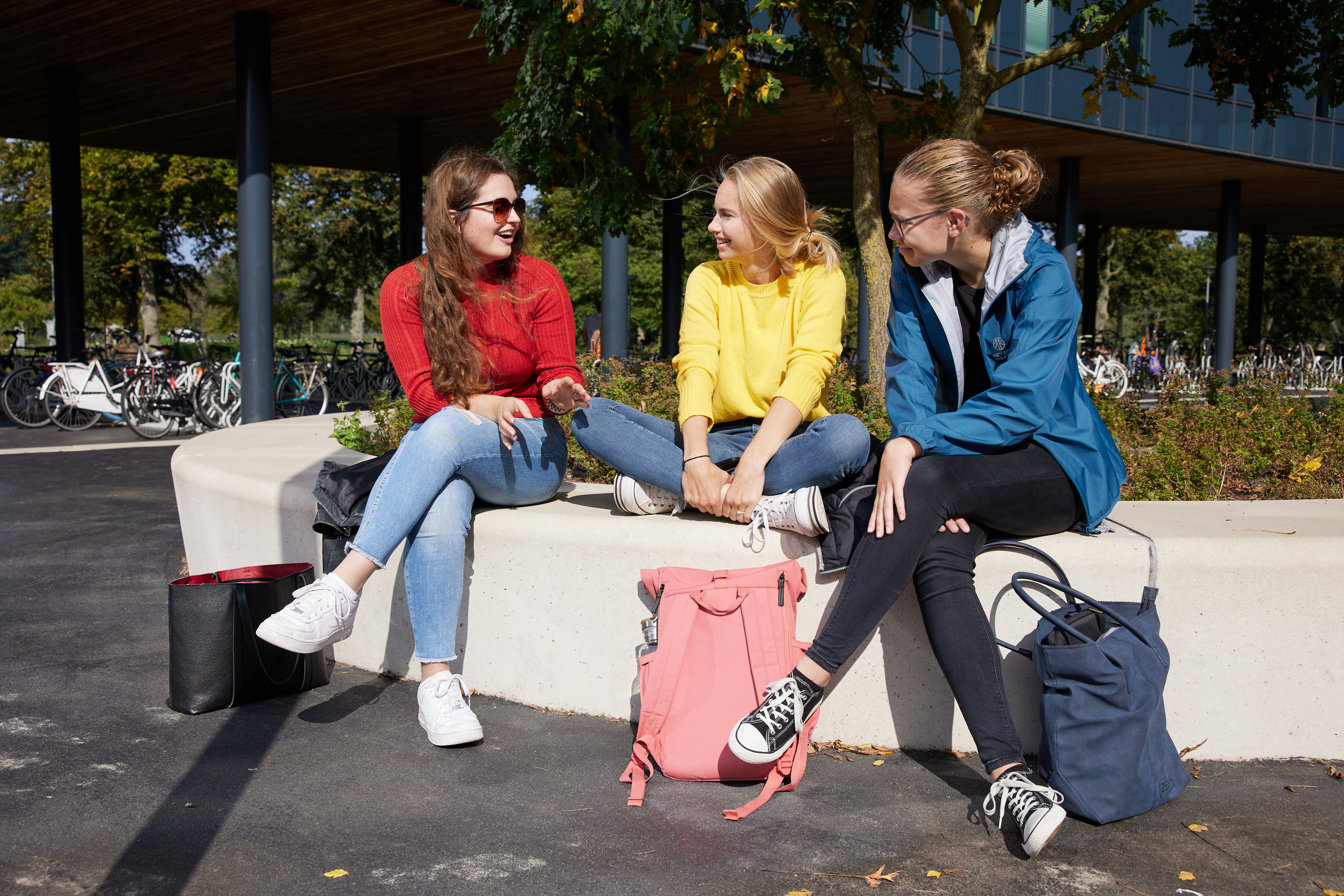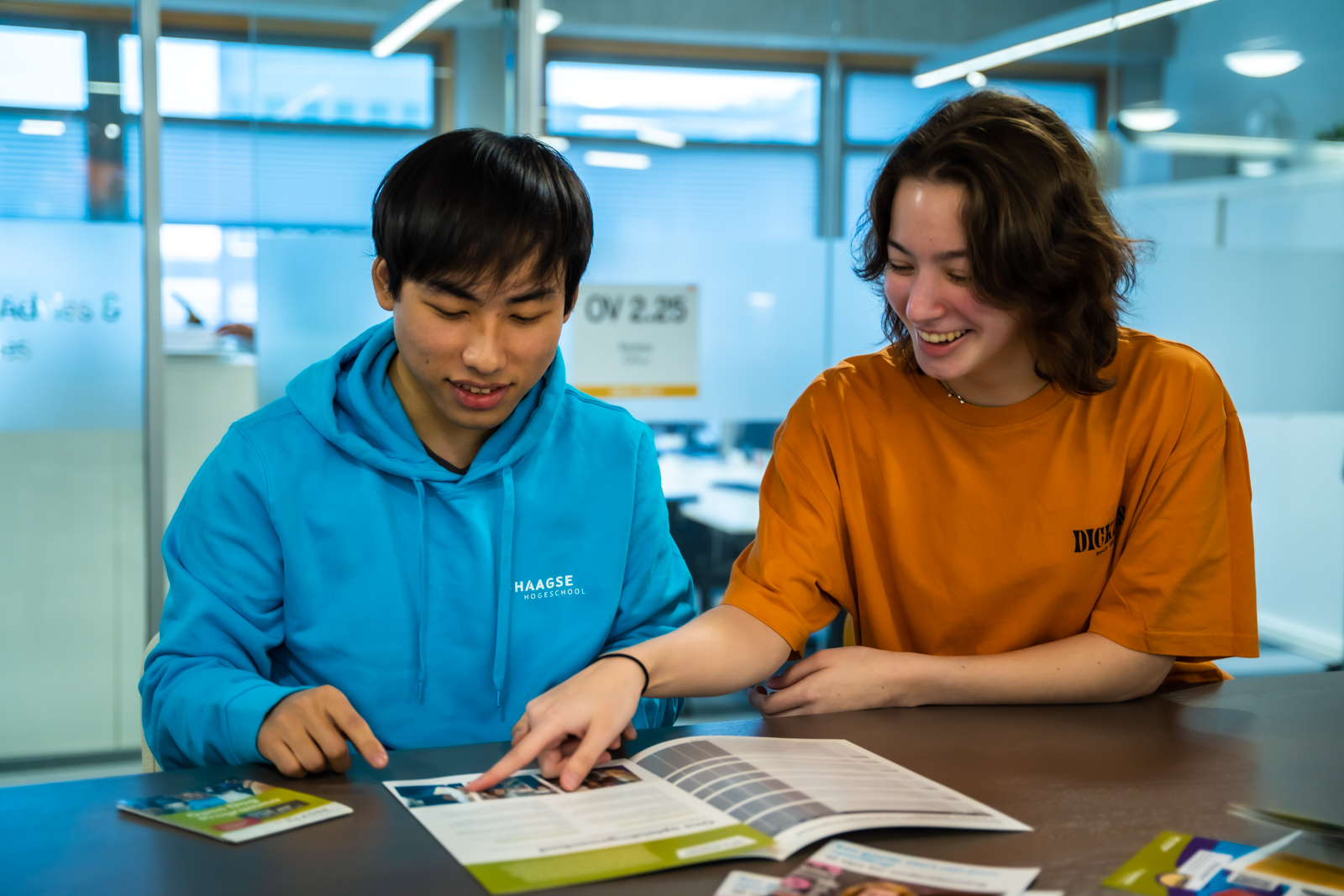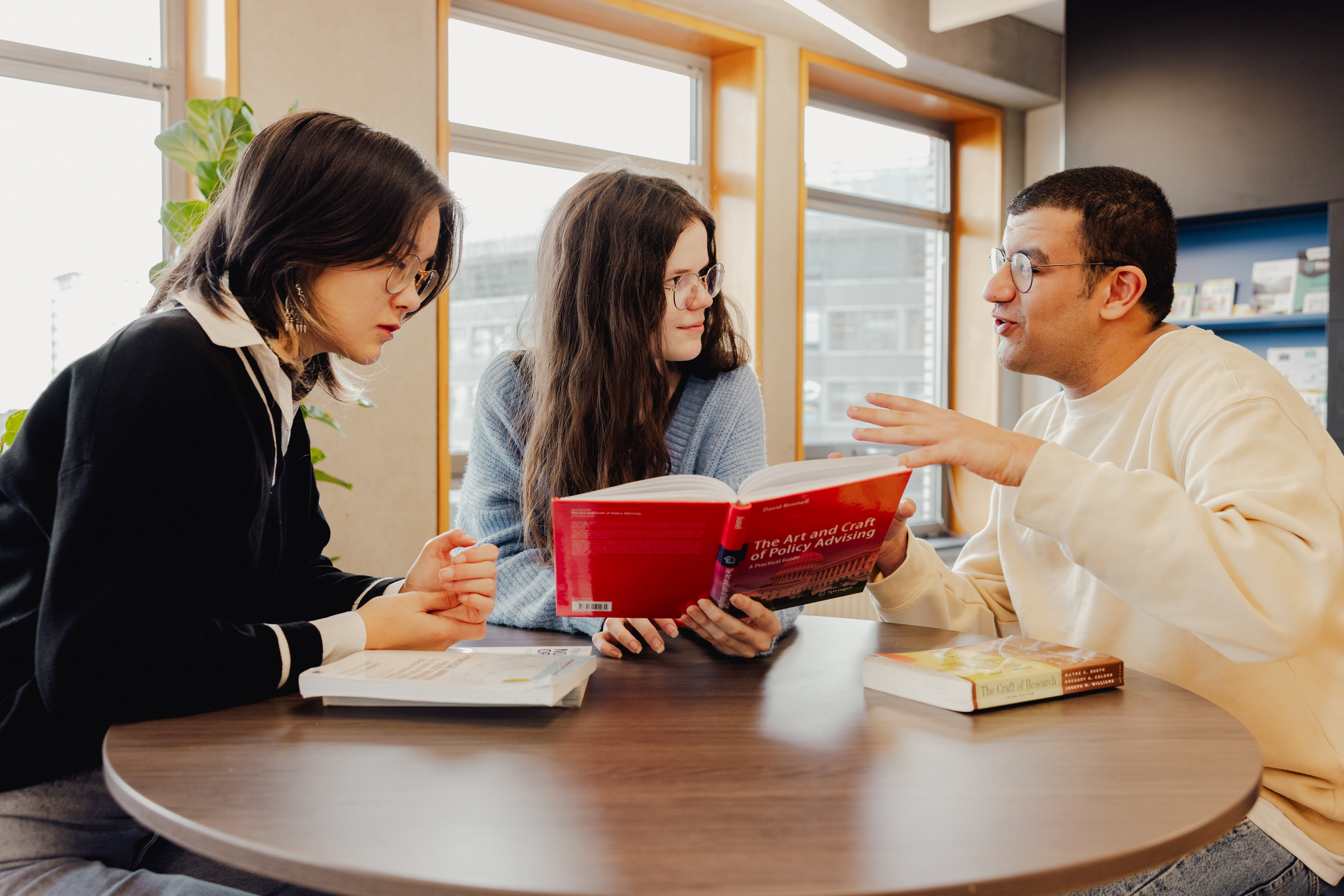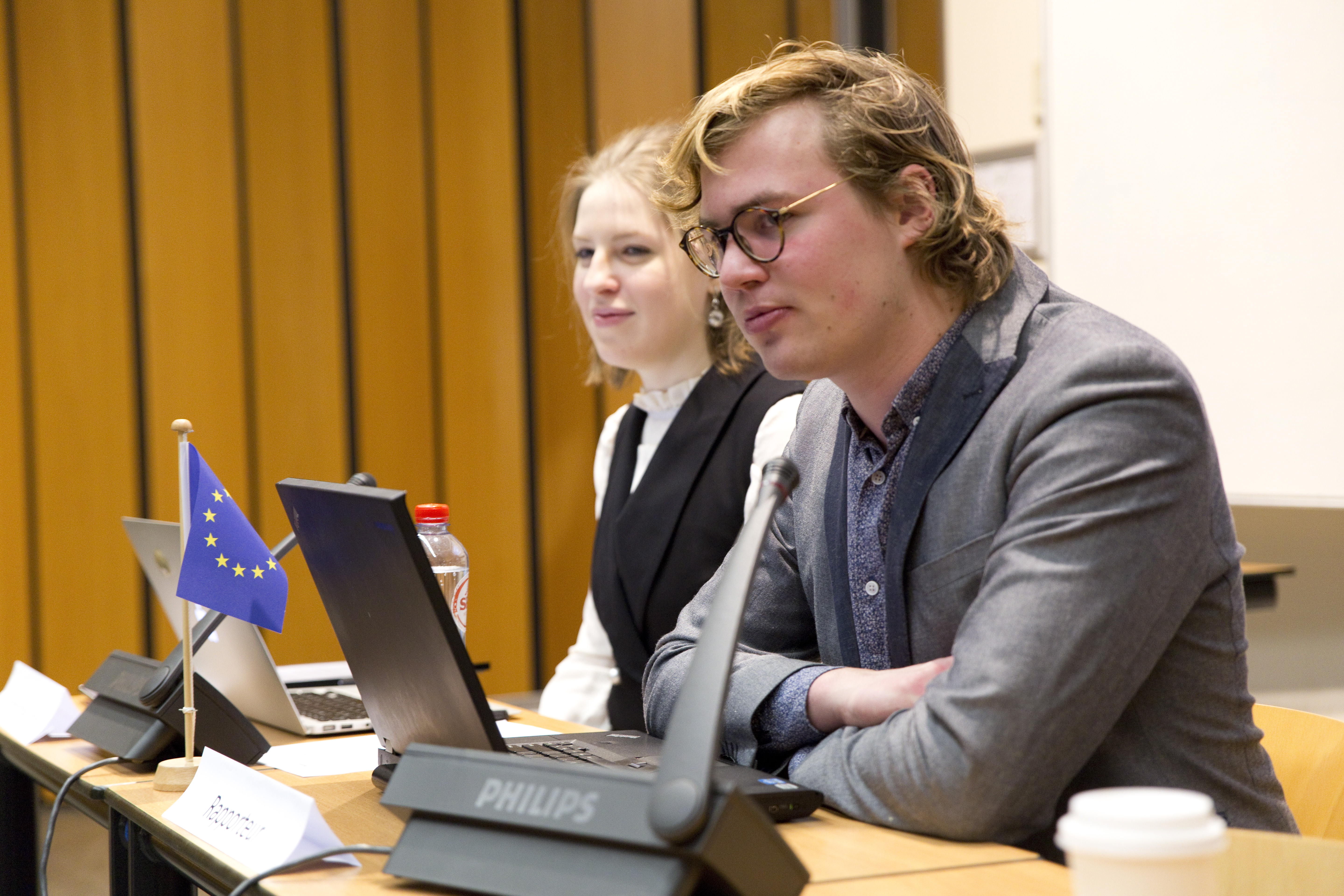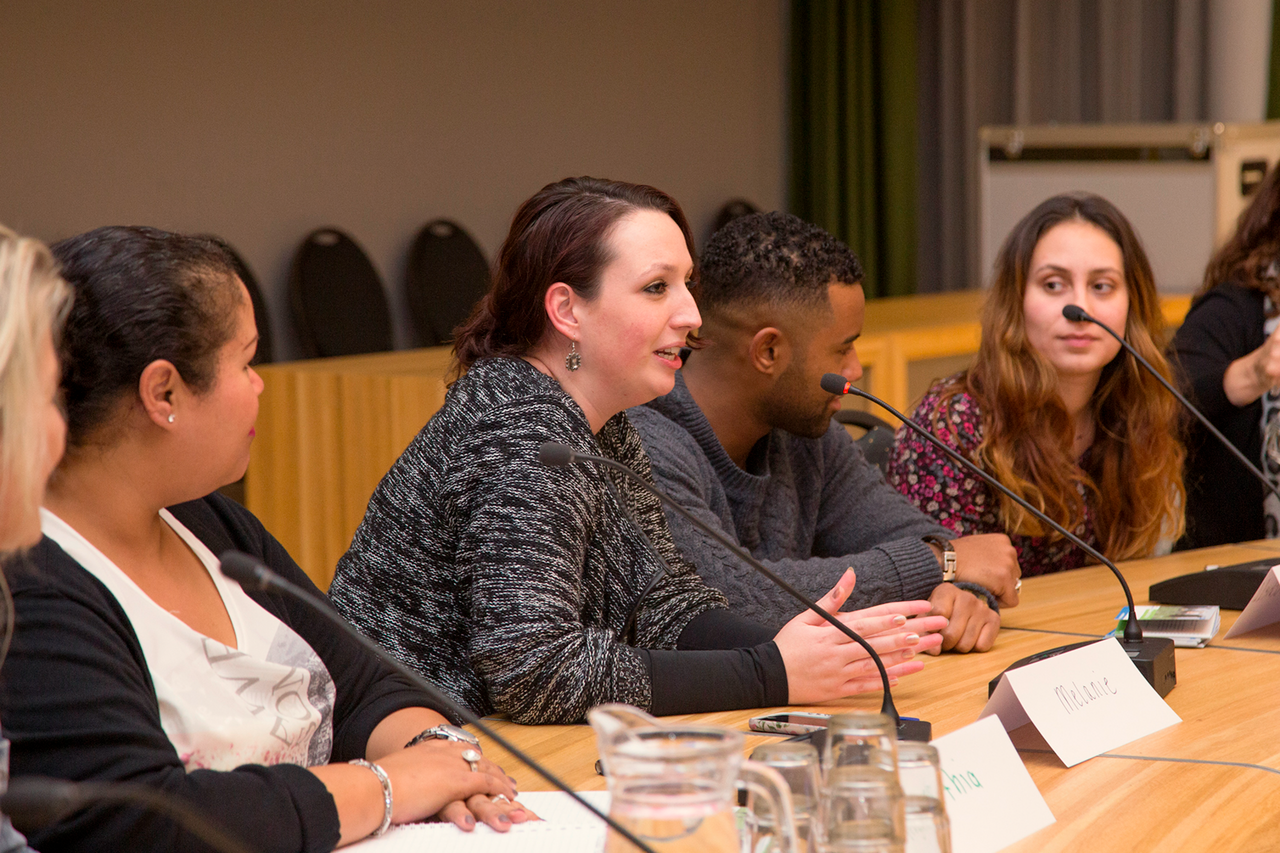
Important deadline! Apply until May 1st for this programme via Studielink. Read more
For you?
Ever wonder which laws allow Facebook, Instagram and Twitter access to your private data? Or if tweets from government officials constitute as evidence in international criminal trials? Do you want to make the world a fairer and more equitable place?
Join students and lecturers from 75 different nationalities in the International and European Law degree programme and learn all about international and European law. This degree programme is in English and based in The Hague, the City of Justice and Peace. It cannot get any more international and equitable than this!
In 4 years you will have all the personal and professional skills to build a successful international legal career. The new bachelor law curriculum is perfectly in line with the current requirements of international law. In the first two years, you lay the foundation for your career and learn through theory and practice how to apply Law in an international environment. In year 3 you will specialise further and deepen your legal skills and knowledge. For example, follow a specific minor, choose modules or study abroad for a semester. In your final year of study, you will do an internship and a final project.
Admission requirements
You have a Dutch diploma
| Pre-education | Required profile |
|---|---|
| Havo (senior general secondary education) |
|
| Vwo (pre-university education) |
|
| Mbo (senior secondary vocational education and training) | Level 4, middle management or specialised secondary education programme |
You have a non-Dutch diploma
To enrol for the LAW 4 year programme you will need a secondary school diploma comparable to a Dutch HAVO, VWO or MBO (level 4) diploma and a good command of English.
Before we can decide on your eligibility, we’ll need to assess your secondary school certificate.
To make sure your certificate is evaluated fairly, we work with NUFFIC, an organisation that specialises in the assessment of international education qualifications.
Entrance advice
It is important that you enjoy communicating in English since law is a very language-oriented discipline. This means that you should have a sufficient feeling for language and be committed to having a good command of English. You should also have an affinity for social issues and economics. A legal professional has to be concerned with social relationships and the role he or she plays in social dynamics.
Language requirements
If you were not educated in the Netherlands you usually have to submit a language test to be admitted. Depending on the type and country of your diploma you may however qualify for exemption. Please check our entry requirements page for more information.
Don’t meet the entry requirements?
Perhaps your academic background is not quite the right level. Or you need some help improving your English skills. Don’t worry. There might be some alternative options to help you get in, and prepare yourself for a successful start of your studies at The Hague University of Applied Sciences (THUAS).
English Academic Preparation Programme
Need help with your English? If you haven’t quite reached the right level of English for your chosen Bachelor’s or Master’s degree programme, you can enrol for English Academic Preparation Programme. After the successful completion of this programme, you’ll be ready to start your degree at THUAS and you will already have a good taste of studying and living in the Hague.
21+ admissions test
If you’re 21 years old before 1 September 2022, but don’t have a diploma or a qualification that meets the entry requirements, you can take the 21+ Admissions Test. The 21+ Admissions Test is offered at several dates between January and the start of the academic year, and consists of a digital general capacity test. Please note that you can only participate if you have an EEA-nationality or residence permit for the Netherlands that is valid on the test date.
Decisions regarding your admissability
There are no exceptions to the official admission requirements. The Enrolment Office is the only party that can make decisions regarding your qualification for admission based on official regulations. You can’t rely on any other sources of information for your qualification for admission.
Degree programme in figures
Programme content
What will you study each year?
Testimonials from our students
Who better to tell about the degree programme than our own students? They share their experiences here. Some of them are also ready and waiting to answer any questions you may have.
Career perspective
What will you become?
Compliance officer
Contract Manager
Legal researcher
Project worker
Legal advisor
Legal assistant
Trainee solicitor
Policy analyst
Continue studying
More and more Law graduates continue their education after graduating from THUAS. Outside the Netherlands, you can follow a masters after graduation. Law students have enrolled for masters at King’s College and the London School of Economics in London, the University of Kent in Canterbury, Oxford and Cambridge. Even as far as Victoria University in Melbourne, Australia.
You should note that some universities in the Netherlands require you to follow a pre-masters year after graduating from THUAS. There are exceptions, such as Utrecht University.
Practical information
What else do you need to know?
How to apply
Your enrolment request must be submitted through Studielink. Before you do, please check the official name of the programme below. Would you like to find out more about the application process first? Check our page How to apply . The key deadlines are listed here as well. This degree programme starts in September and there is no intake in February.
Tuition fee
You will have to pay tuition fees when you enrol on a bachelor's programme. You can pay in one or more instalments. If you pay in more than one instalment a small administration fee is charged.
More information about tuition fees
Scholarships
Find out more about scholarships for international students. Please note that these scholarships are one-off scholarships only, meaning that if you obtain them it is only for your first year of study.
Student finance
Dutch students qualify for extra financial support via a loan. Dutch students automatically qualify for this financial assistance and international students may be eligible if they have lived in the Netherlands for at least five years or are employed for at least 56 hours per month.
Additional Costs
You must also budget for books, excursions and field trips. You can expect to pay approximately €800 per year to cover these additional costs. During your semester abroad, you will also need to pay for tickets, housing and insurance.
Visa and residence permit
Help in choosing your study
We would like to help you make the right decision
It takes a bit of thought and research to find the right programme. The Hague University of Applied Sciences organizes various activities throughout the year to give you the best possible idea of the various studies offered. You also learn what it’s like to study at THUAS. This way, you can click on the registration button without a doubt in mind. Or you’ll know for certain it’s not right for you.
Walk in at our Study & Career Centre for…
Assistance during your studies
Study coaching and advice
You’ll have the support of a tutor to guide you through project work and written assignments in years one and two, your thesis and internships. If you fall behind due to unforeseen circumstances our study coach will help you get back on track. For more information about student counsellors/student psychologists, high-performance sports, Dutch language support or studying with a functional disability, go to our page about support during your studies.
Official details of the programme
This degree programme is registered in the Central Register of Higher Education Programmes (CROHO) as follows:
Official Dutch name of degree programme: HBO-Rechten
Official international name: Law
Programme code (Isat): 39205
Institution code (Brin): 27UM
Both the official Dutch and the official international name of the degree programme (current at the time of your graduation) will be printed on your diploma.
For more information on the accreditation of this degree programme, see the Accreditation Organisation of the Netherlands and Flanders (NVAO) website.
Binding Study Advice (BSA)
To continue your degree programme after the first year, you need to earn 50 of the 60 credits (EC or Credits). In some cases, the degree programme may also require that you pass a specific subject as pEuropean art of the credit requirements. We call this a qualitative requirement. If you meet the credit requirements as well as the qualitative requirement where applicable, you will receive a positive binding study advice (BSA) from the Examination Board at the end of your first year and you will be able to continue your degree programme.
If you earn less than 50 credits or don’t meet the qualitative requirements where applicable, you will receive a negative binding study advice and will have to leave the degree programme. This is why this advice is called a Negative Binding Study Advice (NBSA).
Your academic progress may be affected by personal circumstances such as illness or the professional practice of a sport. It is important that you inform the Examination Board immediately of any personal circumstances that might apply to you. The Board can take these into account when issuing its study advice.
Read all the rules for the binding study advice in Chapter 7 of the Programme and Examination Regulations (PER) for your degree programme.
Looking for a different degree programme?
You might find these programmes interesting too!
